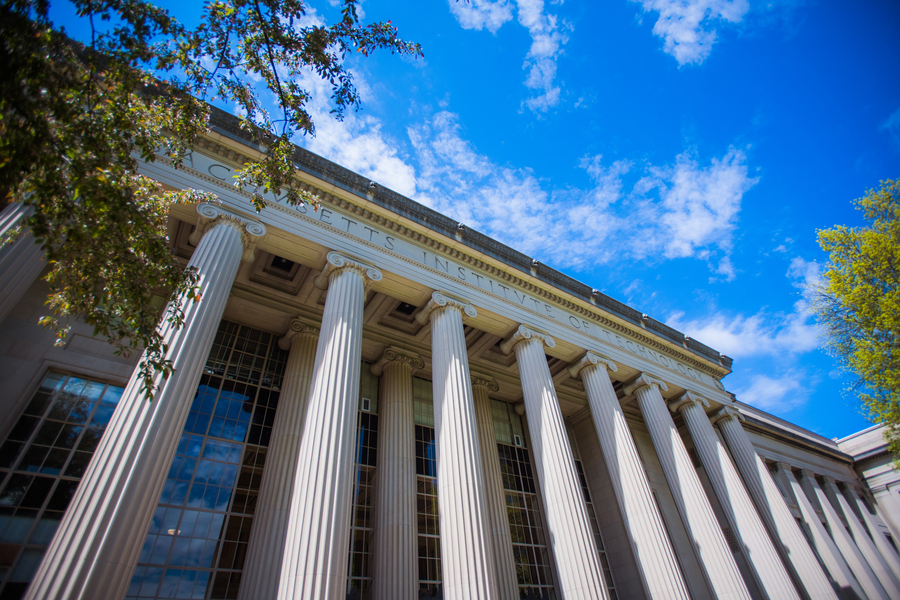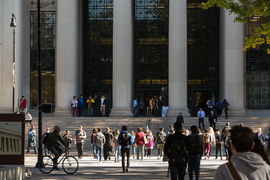The following is the opening statement President Sally Kornbluth delivered yesterday before the U.S. House Committee on Education and the Workforce.
Chairwoman Foxx, Ranking Member Scott and Members of the Committee,
Thank you for this opportunity to describe how MIT is fighting the scourge of antisemitism.
My name is Sally Kornbluth. I have been president of MIT since January of this year.
As an American, as a Jew, and as a human being, I abhor antisemitism, and my administration is combatting it actively. Since October 7th, my campus communications have been crystal clear about the dangers of antisemitism and about the atrocity of the Hamas terror attack.
Let me repeat what I said in my very first message to campus. In that video, I said, “The brutality perpetrated on innocent civilians in Israel by terrorists from Hamas is horrifying. In my opinion, such a deliberate attack on civilians can never be justified.”
I also made clear that students were feeling unsafe “because of their Jewish faith, or their ties to Israel” and said, “That should trouble every one of us deeply.”
I have reinforced this message, including in a November 14th campus video.. As I said then, “Antisemitism is real, and it is rising in the world. We cannot let it poison our community.”
I have been direct and unequivocal – and such leadership statements are important. But they must be paired with action. This is just what we’re doing at MIT.
- Months before October 7th, MIT joined the International Hillel Campus Climate Initiative, which helps universities build awareness of and action against antisemitism.
- We have launched an MIT-wide effort called “Standing Together Against Hate.” It will emphasize both education and community building, especially in our residence halls. In addition to fighting antisemitism, it will address Islamophobia – also on the rise, and also underreported. MIT will take on both, not lumped together, but with equal energy and in parallel.
- Importantly, as is clearly visible on campus, we have increased the MIT police presence. Safety has been our primary concern.
Nonetheless, I know some Israeli and Jewish students feel unsafe on campus. As they bear the horror of the Hamas attacks and the history of antisemitism, these students have been pained by chants in recent demonstrations.
I strongly believe there’s a difference between what we can say to each other – that is, what we have a right to say – and what we should say, as members of one community.
Yet as president of MIT – in addition to my duties to keep the campus safe, and to maintain the functioning of this national asset – I must, at the same time, ensure that we protect speech and viewpoint diversity, for everyone, in keeping with the Institute’s principles on freedom of expression.
Meeting those three goals is challenging, and the results can be terribly uncomfortable. But it is essential to how we operate in the United States.
Those who want us to shut down protest language are, in effect, arguing for a speech code. But in practice, speech codes do not work. Problematic speech needs to be countered with other speech and with education, and we are doing that.
However, the right to free speech certainly does not extend to harassment, discrimination or incitement to violence in our community. MIT policies are clear on this. To keep the campus functioning, we also have policies to regulate the time, place and manner of demonstrations. Reports of student conduct that may violate our policies are handled through our faculty-led Committee on Discipline.
Our campus actions to date have protected student safety, minimized disruption to campus activities and protected the right to free expression. We are intensifying our central efforts to combat antisemitism – the vital subject of this hearing. I note that I am also deeply concerned about the rise in prejudice and hatred against Arabs, Muslims and Palestinians, nationally and in our community, and we are determined to combat that as well. We are also supporting faculty, staff and student initiatives to counter hate. And thanks to an inspiring group of faculty members, we are seeing more discussion among students with conflicting views.
We know there is further work to do. But we are seeing progress. And MIT’s vital mission continues.
Thank you. I’m happy to answer your questions.







